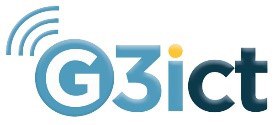Improving Data & Public Policy: A call to action on acquired disabilities and disasters
Posted on July 14, 2025

Senior Fellow, G3ict
In 2022, G3ict’s Global Policy Center published a three-part blog series exploring the critically important yet often overlooked connection between acquired disabilities and natural and human-caused disasters. Our initial post offered definitions, context, and an argument for increased attention to this humanitarian issue. The second post focused on the economic and social costs of inaction. Our final post outlined practical steps for using data and research, emerging technology, and community engagement to adopt a new global stance on acquired disabilities and disasters.
G3ict’s objective is to use our platform to coordinate the development of new resources to aid those impacted by future disasters and the governments, NGOs, and multilateral organizations that must respond. There is an urgent need for such resources, given the following trends in disasters worldwide:
- Increasing levels of violent conflict. The 237,000 reported casualties in 2022 marked a 28-year high. Casualties then increased 30% from 179,099 in 2022 to 233,597 in 2024. Applying the 1:3 ratio of casualties from violent conflict to the estimated number of those who acquire long-term disabilities suggests that upwards of 1.9 million people joined the disability community over three years. We should assume this estimate is low due to the likelihood that data on total casualties is underreported.
- Increasing levels of mass displacement. Estimates show that over 122.6 million people were forcibly displaced as of 2024. This represents a 5% increase over 2023 and a continued trend over 12 years, impacting nearly 1 in 64 people. Mass displacements are known to lead to acquired disabilities and worsen existing health conditions.
- Increasing exposure of the world’s population to natural disasters. An estimated 167.2 million people were affected by natural disasters in 2024. That represents an increase of 79.6% over the 93.1 million people impacted in 2023. Though there is a lack of focus on collecting data on acquired disabilities, it is known that natural disasters cause this due to a variety of aftereffects, including exposure to disease, the loss of health care infrastructure, and mental health impacts such as Post Traumatic Stress Disorder (PTSD).
The pace and severity of global disasters have only intensified over the past several years, and we should expect this to continue. Climate change further exacerbates the likelihood and severity of many forms of disasters and represents a unique focal point for further research on the intersection with acquired disabilities. It is also essential to consider how cultural norms impact the acknowledgement and reporting of disabilities, often leading to underestimations. Combined, the multi-year trends, role of climate change, and diversity of perspectives underscore the need to bring this issue to the forefront.
To add context to the global state of preparedness to address the rate of disabilities acquired through disasters, G3ict is sharing the results of a baseline survey conducted in 2022. The survey was designed to gather perspectives from inclusive technology experts representing 34 countries and shows that:
- 65% of respondents confirmed that their governments likely do not understand or plan for the risk of disabilities acquired through disasters.
- 61% of respondents confirmed that their countries lack data sources on the prevalence of disabilities acquired through disasters.
- 30% of respondents were unsure whether their governments had an understanding or data collection specific to acquired disabilities, underscoring a lack of intentional or well-communicated public sector focus on the topic.
- 65% of respondents answered yes when asked whether they believed there was an increasing risk of disasters in their countries.
- 71% of respondents stated that government entities, NGOs, and private sector companies in their countries would be interested in this topic.
The baseline survey results demonstrate a need to bring better focus to the intersection of acquired disabilities and disasters and an opportunity to uncover practices that can be shared across stakeholder groups. G3ict will administer another survey to determine whether any progress has been made during the past three years and identify priority areas for action.
Fortunately, leading NGOs have made progress over the past several years in raising awareness and providing resources on the topic. The World Institute on Disability (WID) is at the forefront of this work with exciting developments like its accessible disaster response Artificial Intelligence Match Expeditor (AIME) housed on their Global Alliance for Disaster Resource Acceleration (GADRA) virtual Emergency Operations Center. Launched in 2020, the GADRA v-EOC activated to 28 disasters in 17 countries, matched 14 disability-led organizations to resources valued at over $500,000, and assisted local disability-led organizations in evacuating over 1,100 persons with disabilities and their families from crises during the first 4 years. AIME improves these outcomes in scope and scale by providing predictive risk analysis and needs assessments for the disability community, and rapidly matching disability-led organizations with the right resources in response and recovery. A unique focus of the GADRA v-EOC AIME is empowering Disabled People’s Organizations (DPOs) to design and lead inclusive response and recovery efforts. Data on acquired disabilities following a disaster can be collected through AIME, which could be included in the predictive modeling and interface proposed by G3ict. Together, the concepts could lead to breakthroughs in anticipating the rate of acquired disabilities and improved responses for all persons with disabilities across the disaster life cycle.
Another emerging model that would significantly benefit from predictive tools for acquired disabilities and disasters is Access Israel’s Purple Vest Mission. Funded by the Nippon Foundation, the Purple Vest Mission was implemented throughout Ukraine to assist persons with disabilities impacted by the war. If provided with predictive tools on the likelihood of acquired disabilities from future disasters, Access Israel could work with governments and multilateral organizations to position their resources to aid response efforts and help mitigate the long-term effects that contribute to elevated levels of trauma following disasters.
G3ict is uniquely positioned to coordinate stakeholders and advance a data science approach to aid with understanding, anticipating, and responding to the rate of acquired disabilities resulting from disasters. The methods outlined in our previous blogs would complement the vital work of groups like WID, Access Israel, and many others.
In the coming months, G3ict will convene interested parties to thoroughly assess the feasibility and use cases for our proposed approach and the benefits of indices, model policies, and improved census data collection methods to aid governments, NGOs, and multilateral organizations.
G3ict welcomes engagement with all interested parties. Please contact Shane Kanady at [email protected] to join the discussion.




























